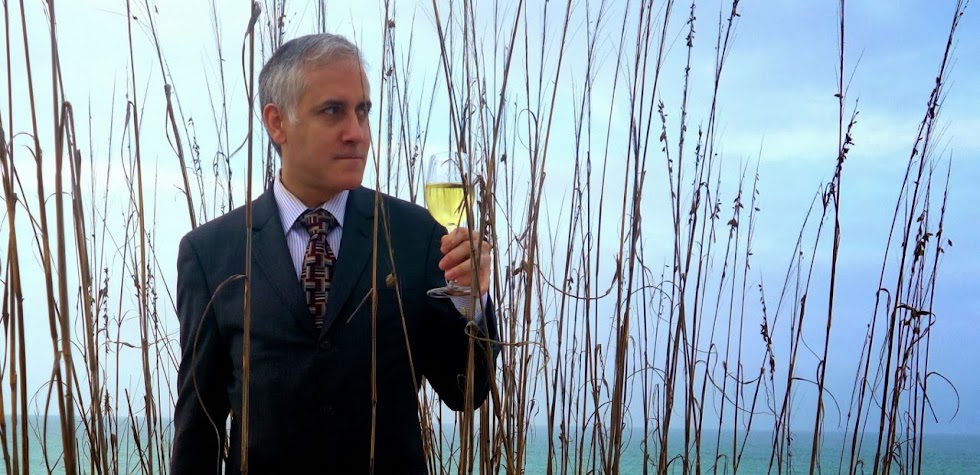Conrad Tao, piano
Voyages, Conrad Tao’s second release on EMI follows "The Juilliard Sessions" by a year. This 18-year-old pianist begins respectfully enough with Meredith Monk’s short trip, Railroad, whose inclusion seems an unstated embrace from the official sphere of high postmodernism.
Voyages, Conrad Tao’s second release on EMI follows "The Juilliard Sessions" by a year. This 18-year-old pianist begins respectfully enough with Meredith Monk’s short trip, Railroad, whose inclusion seems an unstated embrace from the official sphere of high postmodernism.
Vivien
Schweitzer of The New York Times kindly and gently mediates the words and
thoughts of the young master. In the notes we are told: “Audiences should be
inspired to think about musical journeys, not just from A to B, but rather
between A and B.” This hermeneutic, though well and fine, reveals a failed flaw
– B is not A, and if it is, what then be between a thing and itself?
In
the set of Rachmaninoff Preludes, each one begins well and some begin
beautifully, but they quickly bog in the minutiae of technique and meander
without destination or distinction. Rachmaninoff judged the success and
vitality of a performance by the realization of the pivotal point upon which
rests the musical structure. Ultimately, Mr. Tao’s two-dimensional
interpretations are DOA.
In
his own music, a better musician emerges with more impressive pianism. In the
unfortunately named suite vestiges, the best of these pretentiously titled
movements is the first "upon walking
along green glass bottles," with its finely layered broad gauzy textures and
well-realized proportion. The next bit: "upon ripping perforated pages" is a predictable moto perpetuo played
with admirably incisive articulation. The third piece, whose harmonic language
is described by Ms. Schweitzer as “ambiguous,” might be better amended to its
heading "upon being" with "lost." Predictable too is the flashy
finale, "upon viewing two porcelain
figures." Its ABA form comes off as lazy, and the glissandi at the end are
childishly cheesy. What do honks, stomps and whomps in the bass have to do with
ceramics?
Ravel’s
ever-captivating Gaspard de La Nuit is not a good vehicle for Mr. Tao’s
capabilities at this time. His imagination is neither vivid nor bold enough to
plumb the meaning of the notes or to sing the music that soars through Aloysius
Bertrand’s texts. Ondine, though lubricious in touch, is dehydrated by halting
timing and phrasing by the bar or half-bar. This nymph is dead in the water.
The bleakness of Le Gibet is rendered by an interminable tedium from a
languished tempo that this pianist cannot possibly sustain. Indeed, he ends
faster than he began.
Scarbo
is delivered to impress, and his control is admirable, but what of
the
reckless impishness of this charming amoral spirit?
The
last track is Mr. Tao’s iridescence
for piano and iPad®, which produces tones like pitch-amplified raindrops and
shadowed vocalises. Influenced by Eno and Messiaen, written in an
indie-minimalist genre, I’d like to maternally admonish him: “Conrad, get off
your iPad®”. By his own admission, his
dirty secret is: “I am bad at time management and don’t get enough sleep”.
Being a full-time student with a busy international schedule and important
commissions to fulfill, this recording is proof that he has his fingers in too
many pies.
Christopher
O’Riley is quoted as saying “he is the kind of musician who is shaping the
future of music.” Will it be longer than 15 minutes? Will he get more
sleep? Can Columbia University instill in him rigor and discipline? And what
new gimmicks will the powerful interests come up with to market their hatchling
superstar?
-CrackCritic
PS.
Why does the sound change in the fourth minute of the ninth track? Who approved
the ghastly cover design? Folks, you’ve got to do better.


Hilarious review and writing. And I agree with what you write here. Please keep delivering the goods!
ReplyDeleteGiveittome!